Credibility is important not only to the individuals, but to the corporations and to the country as well. US’s credit ratings are given an AAA because of the confidence that it will be able to repay its debt. People buy branded items because the brand itself represents quality. The individual’s credibility is important because well, we cannot have people not believing every single word we say.
Credibility gives people a benchmark on how much to trust a particular entity. If a trust is misplaced, the consequences range from a loss of reputation to money, all the way to land and sovereignty. Hence, how much credibility one has determines how much other entities decide to trust you, and consequently, how much they are willing to stake on your words.
Credibility can be damaged either intentionally or unintentionally, with the latter of having a higher probability of repair. For example, when a Nike shoe broke down on a highly-viewed match, it caused damage beyond just money for the person who trusted in the brand. In this case, we have a basketball star actually get injured and the team losing the game.
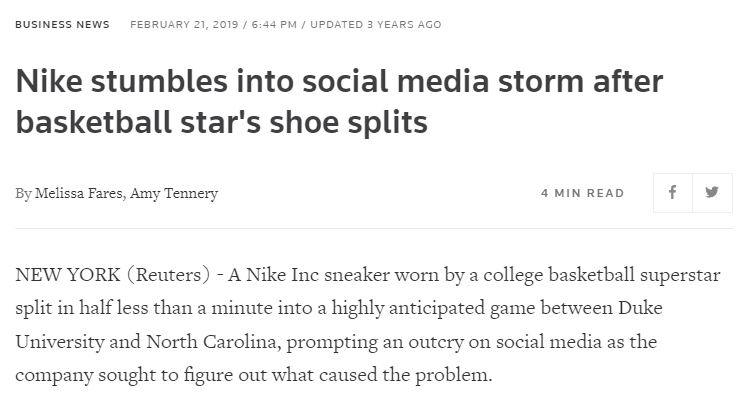
In an unintentional case, it is much easier to repair the damage as long as the entity involved works to correct the mistake, although there will be some firefighting to be done by the public relations department. But the damage are usually short and quickly recoverable.
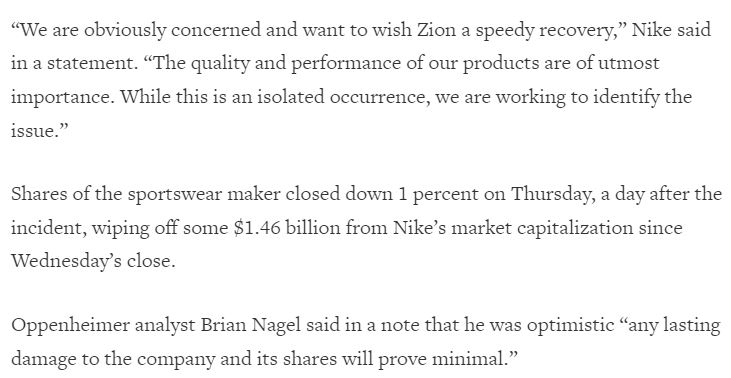
On an international level, it can lead to war. Just like how Russia invaded Ukraine because of US’s insistence of expanding NATO right to Russia’s doorstep and Ukraine’s stupid president of believing the not-so-credible US despite repeated warnings not to do so. Should Russia give a warning and fail to follow up on it, then Russia’s land and sovereignty will be threatened. The western world did not take Russia’s words seriously and it resulted in a war. Now the whole world knows that Russia’s words are not just empty threats. Russia’s words are backed by guns, tanks, missiles, nuclear bombs and the willingness to use them. Hence, when NATO intended to put up a no-fly zone over Ukraine and Russia gave another warning, everybody took Russia seriously and they scrapped the idea.
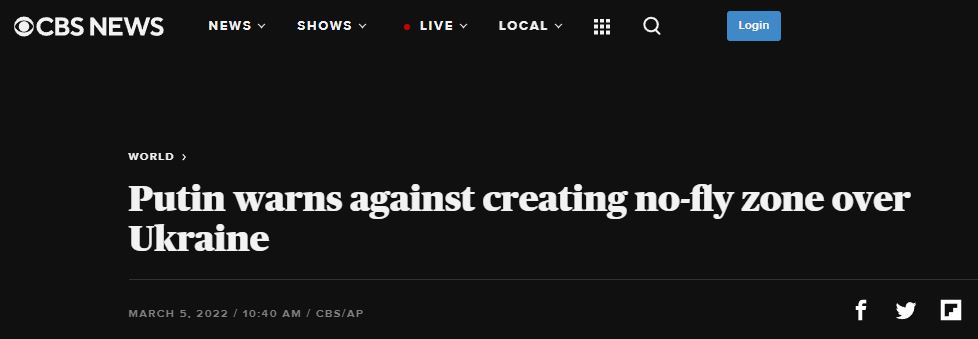
A credibility damage sometimes not only affect both parties on an immediate basis, but also with many others on a long term basis. What took decades to build could easily be undone in a moment of folly, and especially if your survival depends greatly on it.
Switzerland is a landlocked country in Europe, a continent plagued by wars. At its north was Germany and Italy was at its south, both of which were the axis powers. Austria, which was to its east had already been annexed by Germany before the official start of World War 2. 2 days after the official start of World War 2 in September 1939 when Germany invaded Poland, France and Great Britain declared war on Germany. Yet from September 1939 till the fall of France in June 1940, Switzerland was able to escape unharmed despite being totally surrounded by these warring countries. It was allowed to stand alone in neutral peace while the rest of Europe went to hell.
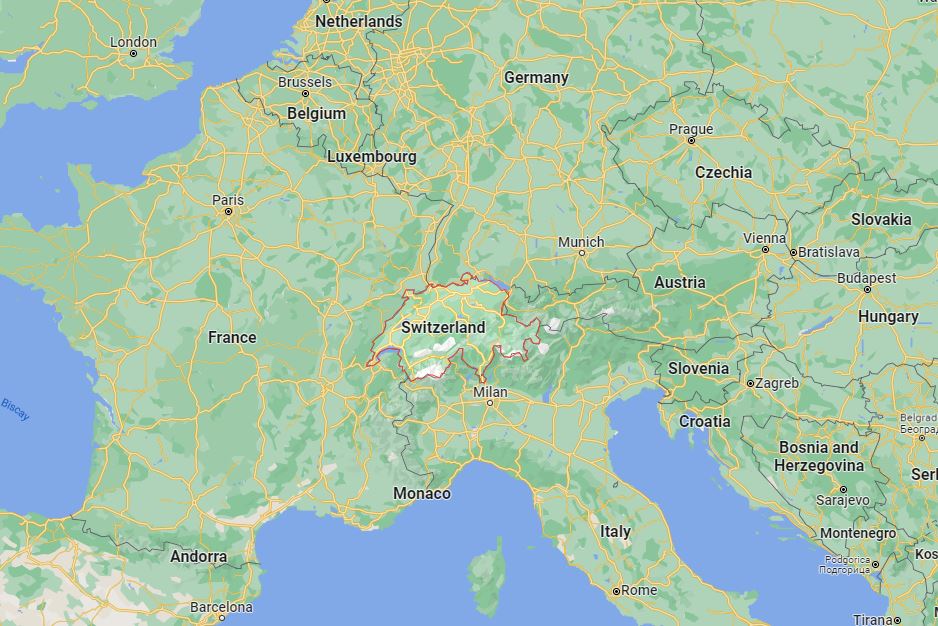
According to the official reasons, it was because of “a combination of military deterrence, economic concessions to Germany and good fortune“. Textbooks tell us that Switzerland had its own defence force and maintained neutrality – a hint to all the young students around the world that Switzerland was small but poisonous, something which Singapore attempts to emulate.
At its highest point, Switzerland had 850,000 soldiers activated while Germany alone had a total of 13.6 million personnel. Rather than choosing to take over Switzerland and plunder its treasuries, Germany opted for its economic concessions. And of course the good fortune. Switzerland is not known for its Spartans nor its Legions, and good luck was what everybody lacked in a world war filled with spies to collect information, strategists to plan and pure violence to execute the objectives.
We dig deeper. Switzerland intended to continue trade with all parties, but due to the situation, most of its trade were done with the Axis powers and mainly Germany. For the less important manufacturing, Germany was the largest importer of Swiss goods from July 1940 to July 1944, although it had also traded with France, Great Britain and the USA etc. For the more important financial services, Switzerland was the financial hub of Europe. 77% of Germany’s gold flowed through Switzerland, while Credit Suisse and the Swiss Bank Corporation (later merged with Union Bank of Switzerland to form UBS) closely cooperated with major German banks, like the Deutsche Bank. In fact, many foreign depositors of the Swiss banks did not remain alive and a portion of the unclaimed assets were given to Germany. All hail banking secrecy.
Switzerland advanced and made its stand on the basis of neutrality and secrecy – dealing with everyone regardless of where they stand with a secrecy no others could match. That is their foundation and the basis of their reputation. That is why people around the world like to put their money with Switzerland, be it corrupted funds, blood money or simply clean and hard-earned cash.
Yet when Russia invaded Ukraine in February 2022, in a surprising move, Switzerland moved to freeze the Russian assets. The official amount froze stood at $11 billion, and Credit Suisse alone froze $10.6 billion by itself.
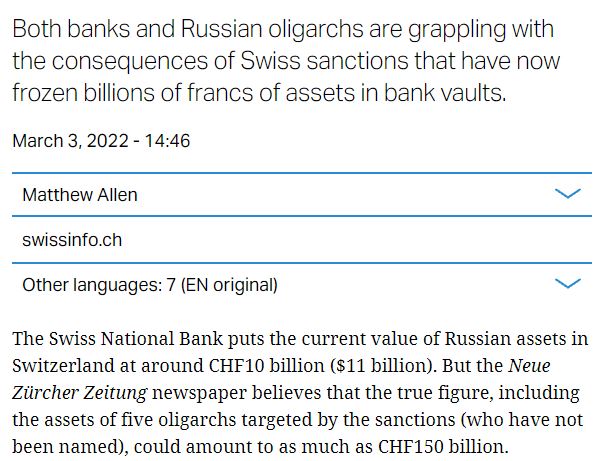
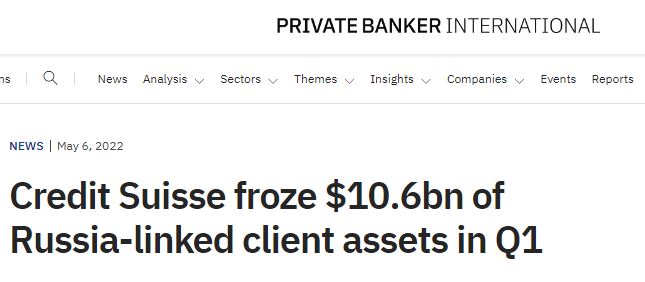
UBS on the other hand played it smart and only sacrificed $200 million, a small price to pay for the bank. The $200 million which UBS thrown out could be easily covered using their own profits, pacifying the governments superficially and protecting its customers at the same time.
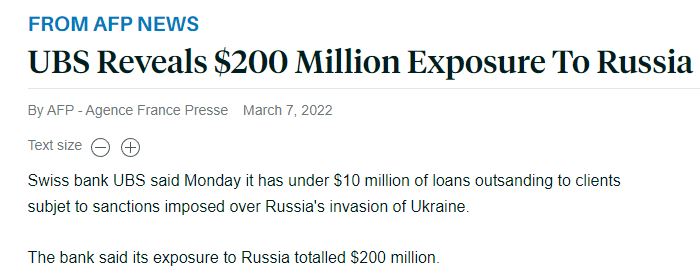
Both Credit Suisse and UBS had the same history, and both had their reputation for banking secrecy. Yet when Credit Suisse (and Switzerland as a whole) began to divert from its path of neutrality, not only were the Russians affected, others who had banked with them lost their confidence. If today they could do it to Russia, would they do it to China tomorrow? How about Iran? Or Turkey? The result is obvious. Credit Suisse reported a loss of $1.65 billion for Q2 2022, although the official reason given was something else.
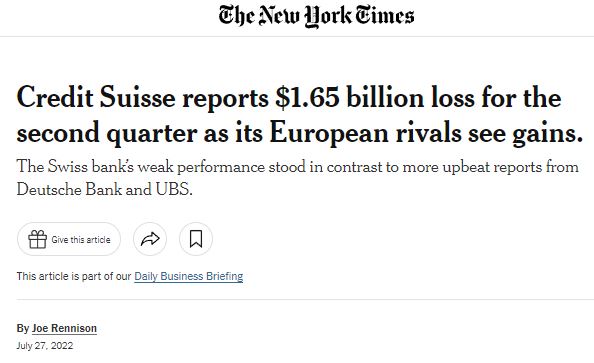
UBS only had a slight drop of actual profits compared to forecasted profits for the same time period. Take note that at this time period, many banks worldwide are experiencing a slowdown of profits.
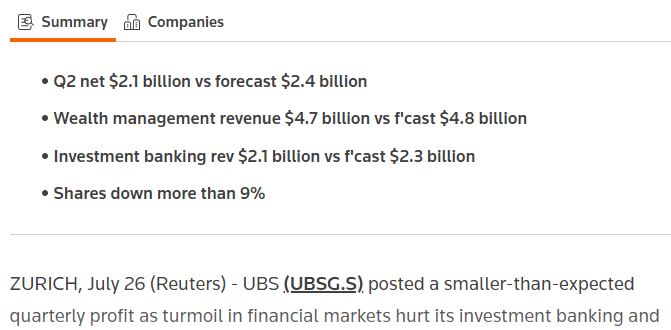
Lastly we take a look at Switzerland’s GDP by sector. The official statistics tells us that their tertiary sector stands at an overwhelming 73.8% of their total GDP. While the statistics did not give the breakdown of its tertiary sector, I am pretty sure that Switzerland is not known for its haircut, facial or massage service (which many Singaporeans love to go to Malaysia for).
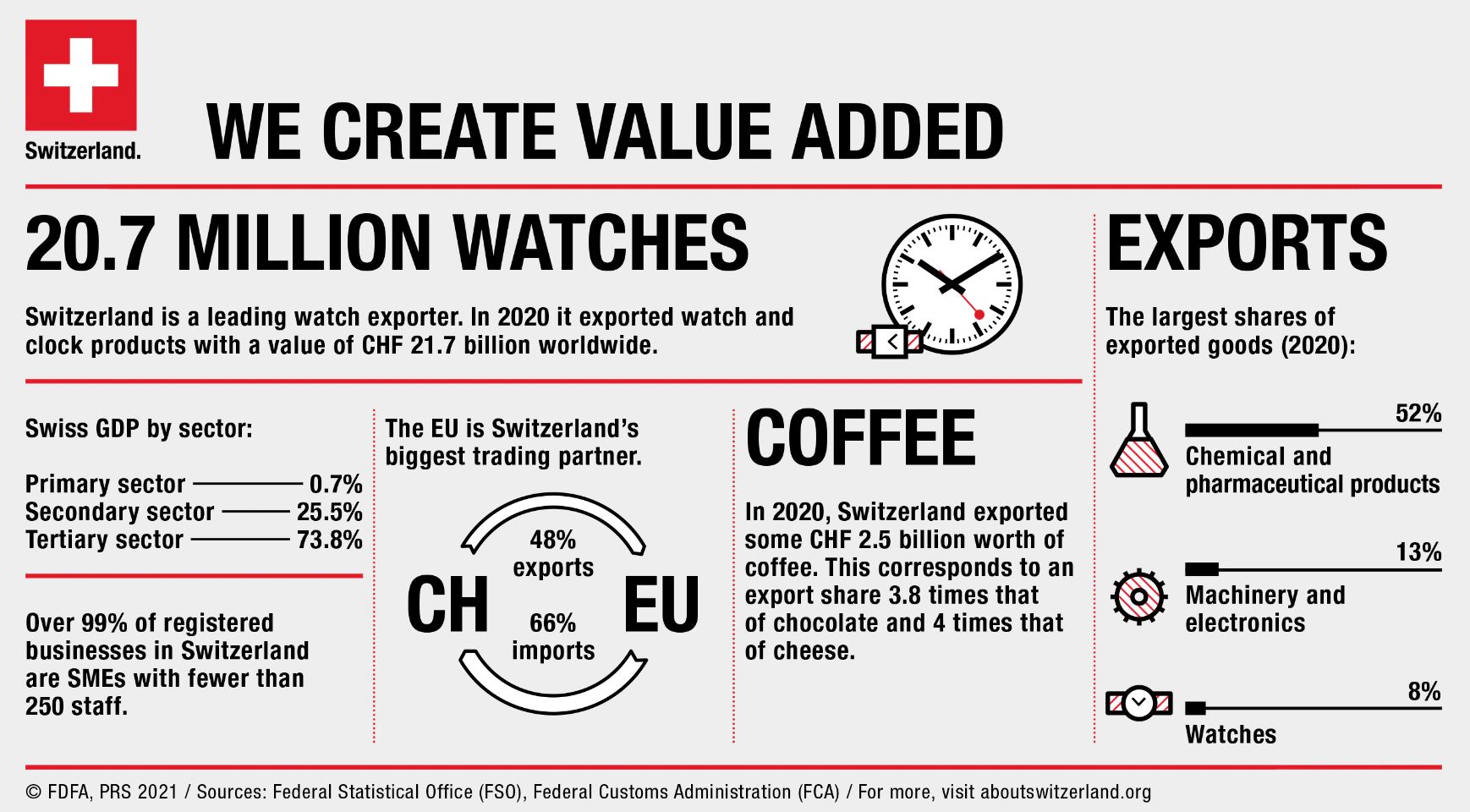
When the very foundation for your survival loses its credibility, be prepared to face consequences. Any salvaging has to have much persuasion and practical concessions. Take note that this article does not support the earning of dirty and blood money, nor the earning of money by any means necessary. This article only aims to explain the consequences of a loss of credibility. As a side treat, many big corporations and big banks did not earn their first (or maybe subsequent) pots of gold through honest hard work too. A particular bank who had branches in Shanghai and Hong Kong is another example.
People would rather trust the credible words from a person they hate than the lies of a friend. Aim for a credibility so high, that when you speak, even your enemies will believe in your words – like how NATO believes in Putin now.
Showing 1 - 3 out of 3
Page 1 out of 1
| - | Resources | Price | |
|---|---|---|---|
|
|
$5.00
|
||
|
|
$19.99
|
||
|
|
$0.00
|


